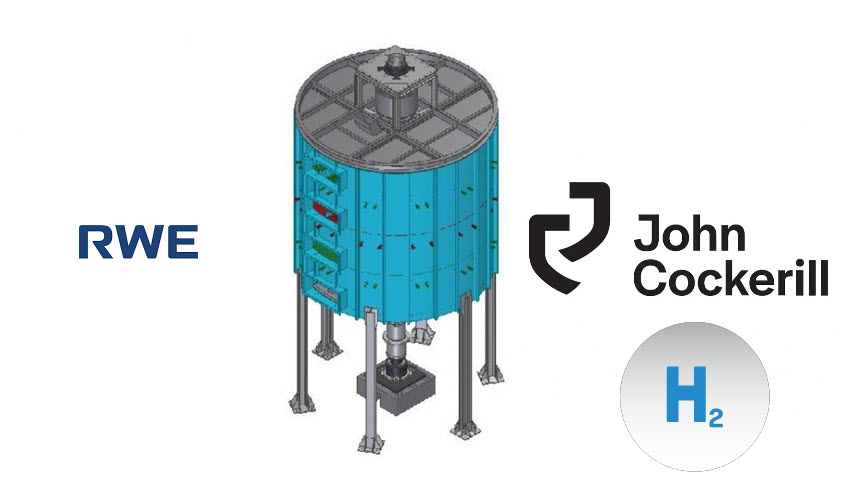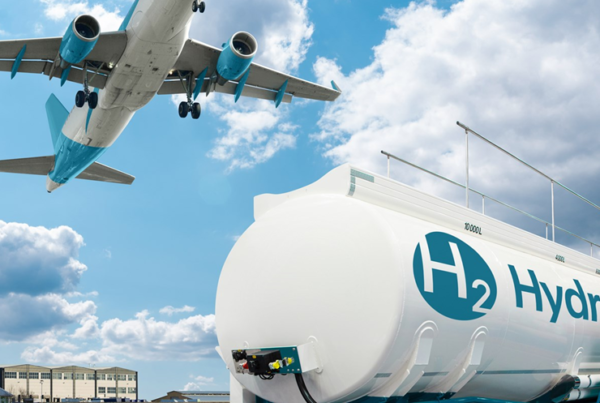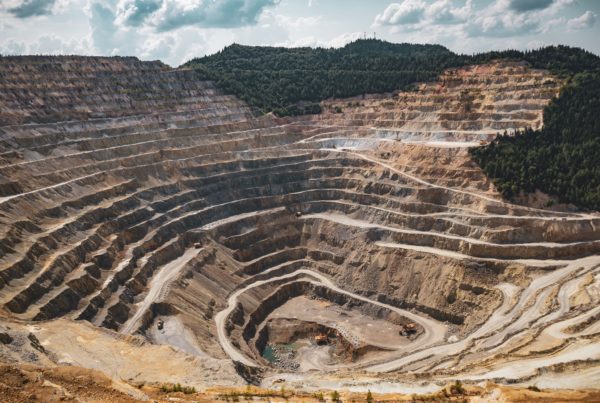
- Test facility will optimise key process step in the production of hydrogen from municipal waste
- The optimised process will be key to the fuelling of the Dutch hydrogen project, FUREC
- €3 million test facility at the RWE innovation centre at Niederaußem is expected to be operational in autumn 2022
“Hydrogen is crucial for the decarbonisation of industry. There is a growing demand for it because many companies can only achieve their climate targets by switching their processes to green hydrogen. In our new pilot plant in Germany, we will optimise a key step in an innovative process for generating hydrogen. The findings from these operations will feed into our FUREC project in the Netherlands. There, we plan to recycle circular and green hydrogen as well as CO2 in an economically sustainable way from municipal waste. By making the recycled raw materials usable for industry, we will contribute to creating a recycling hub in the Limburg region. At the same time, we will help our industrial partners to reduce their carbon footprint.”
Roger Miesen, CEO of RWE Generation

RWE and partners John Cockerill are to jointly build a testing facility in Germany which will optimize a key stage in the process of turning household waste into hydrogen. The facility – called a torrefaction plant – will be built at RWE’s innovation centre in Niederaußem (Germany) and will test the production of feedstock pellets made from waste, to be used in the company’s innovative FUREC waste-to-hydrogen initiative. RWE is going to invest €3 million in the pilot plant, which is scheduled to be operational in July 2022.
At the heart of the new plant in Niederaußem is the NESA Multi-Hearth furnace (MHF), a technology supplied by John Cockerill Environment. In this furnace, waste pellets will be roasted (torrefied) in such a way that they can be ground into dust and converted into hydrogen and CO2 in a later thermal process under the exclusion of air.
The pilot plant is being built at the RWE Innovation Centre in Niederaußem because the company already has the technology for generating and storing gases there. The facility is the next step in the development of RWE’s FUREC project (Fuse Reuse Recycle) – a large-scale chemical recycling plant at the Chemelot industrial park in Limburg, in the Netherlands.
There, RWE plans to produce circular and green hydrogen and CO2 for the chemical industry from municipal waste. In the process, FUREC will recycle the hydrogen and CO2 that normally escape into the atmosphere when waste is incinerated or landfilled. Because much of the waste used as feedstock will be of organic origin (e.g., textiles, paper), 50% of the hydrogen recycled in this way will be green. The rest is considered circular hydrogen because it is recovered from plastic waste and used industrially. In this way, it remains in the material cycle.
By using waste streams as a substitute for natural gas in the production of hydrogen, FUREC will reduce the use of natural gas at Chemelot by more than 200 million cubic metres per year. This is comparable to the annual gas demand of approximately 140,000 households and results in an annual CO2 reduction of 380,000 tons. The CO2 released in the process can in the future be stored via CCS, resulting in negative emissions. In addition, it can be used as a raw material (green carbon) at Chemelot or shipped via pipelines to the likes of Rotterdam or the German Ruhr area.
Currently, RWE is further developing the Dutch FUREC project and has already started with the necessary licensing procedures. The company aims to make a final investment decision for FUREC in 2023. RWE is discussing the possible future sale of hydrogen with the company OCI N.V., which operates a production plant at Chemelot. Hydrogen would enable OCI to make its production chain more sustainable and contribute to circular food production.
Christophe Cassant, CEO John Cockerill Environment: “This project is an example of how John Cockerill Environment’s technologies respond to the challenges of tomorrow. We are proud to participate in RWE’s FUREC project because it will help decarbonise the industry and meet the needs of our clients in both the Netherlands and Germany. Our MHF furnace technology will be used in future applications which will make an active contribution to reducing carbon emissions.”
Read the most up to date Fuel Cell and Hydrogen Industry news at FuelCellsWorks




